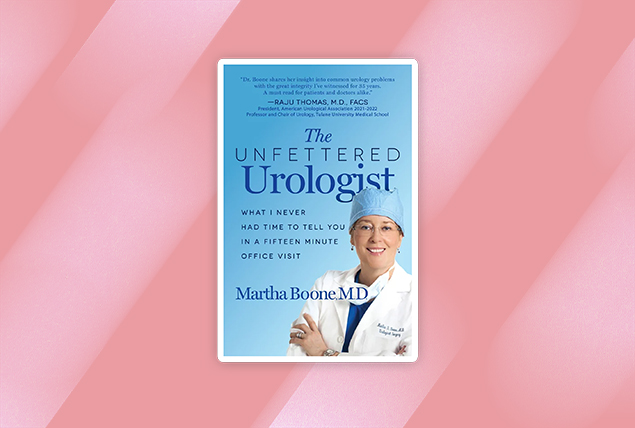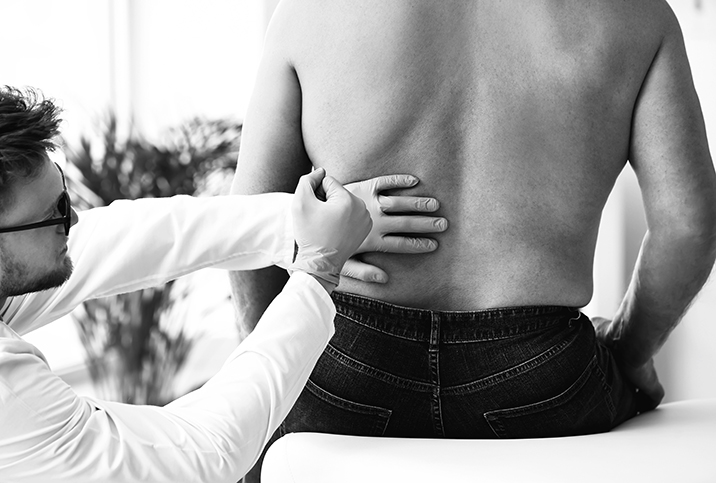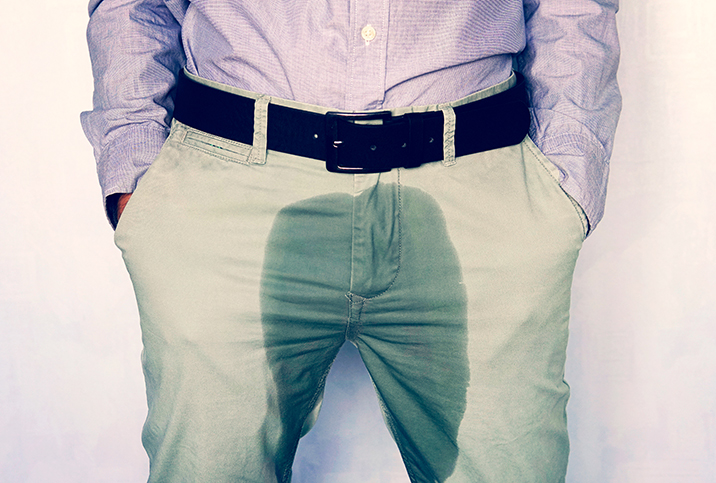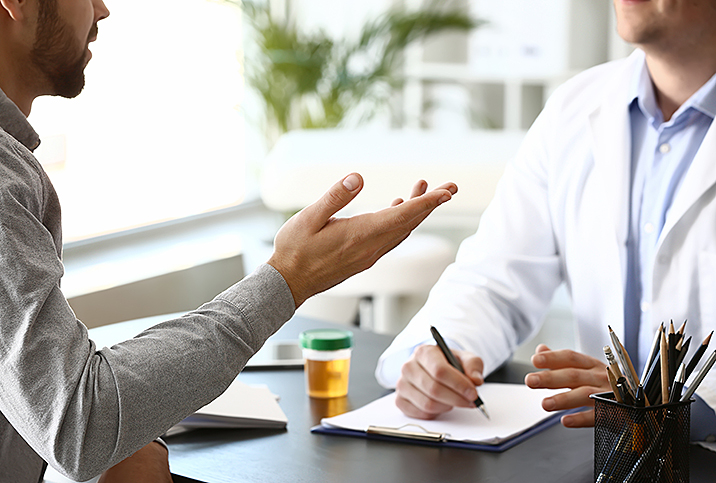Between the Pages: 'The Unfettered Urologist' Goes Beyond the Basics

Atlanta-based urologist Martha B. Boone, M.D., draws on more than three decades of experience while sharing her insight and intuition about common urology issues in the nonfiction book "The Unfettered Urologist: What I Never Had Time to Tell You in a Fifteen Minute Office Visit."
Topics covered in the book include erectile dysfunction (ED), bladder cancer, urinary incontinence and other common urology issues. Boone uses terminology that's understandable to patients and caregivers. For 35 years, she saw 25 to 30 patients each day, and she often left the examination room wishing she had more than 15 minutes to speak with them, knowing there was much more to say.
This book is her way to discuss vitally important information that could never be included in a regular office visit.
Boone is also the author of "The Big Free: A Novel." Her second fictional book, "Mother Charity," is scheduled for publication in March 2024.
In this exclusive interview, Boone provides prevention tips for kidney stones and urinary tract infections, explains why it's important to be evaluated if you have blood in your urine and more.
Editor's note: This interview has been edited for length and clarity.
Tell us something about your background in medicine.
I absolutely loved my career as a urologist. When I was in medical school, I went to visit the chairman of the urology department and expressed my interest, and he said, "We're really not ready for women in urology."
I walked out of his office and I thought, "Oh, well, then you must need some women in urology." I was determined to be a urologist.
I did general surgery at Charity Hospital in New Orleans, and then I did general urology. I then went out to the University of California, Davis and was a fellow in reconstruction. I did seven years after medical school, and then I did academic urology for five years. I realized I really liked taking care of my own patients, which is when I went into private practice, where I did that for 25 years.
Toward the end of my career, information started growing at an almost exponential rate. Trying to keep up with the latest technologies became a daunting process. Plus, I recognized that my license as a medical doctor covered me to prescribe patients only things that had been proven in a randomized, double-blind, controlled study.
And I had so much more to offer than that.
I learned so much from my experience and my intuition because interacting with patients is a two-way street. I would offer them the scientific answer to their problem and then they would come back to tell me what worked and what didn't. I began to see more and more patients seeking information outside of conventional medicine. They would give me feedback about other things they tried, which weren't what I prescribed.
Tell me about your decision to retire and become a full-time writer and about the idea for 'The Unfettered Urologist.'
I began to have this amalgam of both conventional and alternative medicine. My experience and intuition indicated that I really couldn't fit everything into a standard urology visit. All those things, combined with the fact that I wanted to do some extensive travel, led me to quit working for a year.
Well, that happened to be the year COVID-19 came along. All of my travel plans were changed and rearranged, and because by that time two years had passed, I decided not to go back to work. I really couldn't travel due to COVID-19 and so I decided not to.
Then I considered writing a nonfiction book. During the 18 months after I retired, both patients and colleagues continued to call me with questions. I was very surprised by that because Atlanta has probably 120 to 130 really good urologists.
I also spent a lot of time trying to get everybody placed at the right practice. I was not expecting people to be contacting me, but most of my patients and colleagues had my cellphone number; they still wanted my experience and my intuition.
Even after I had left the medical community, people still wanted information and wanted to know how I would do something. They trusted me because they realized I had an open mind. I wasn't dogmatic about what the literature said.
I decided I needed to write "The Unfettered Urologist" to give all the information that people kept coming back to me to get. Then, when I started writing it, I knew it was going to be helpful to people.
Kidney stones are more common in the summer months. What would be a few of your prevention tips?
During summer people go to the beach and drink a lot of alcohol, which is dehydrating. For every cup of alcohol you drink, you'll actually lose more fluid than a cup. They're in the sun playing all day and, a lot of times, eating salty foods and drinking alcohol. That's the trifecta for forming a kidney stone in summer.
For most people, the No. 1 thing is to stay hydrated. You know you're hydrated if you look in the toilet and your urine looks pale yellow. If it gets darker and you're not taking some type of drug or supplement that would make it dark, then you're behind with your hydration. For people who aren't doing a lot of exercise or aren't working outside a lot, you want to take in about 2.5 to 3 liters of fluid per day. That does not include anything with caffeine or anything with a lot of sugar or alcohol.
This is an often-disputed fact in the literature, but it's my belief that things with lemon and citrus can help, too. I saw over and over again in my practice that people willing to drink lemon water seemed to have a lower incidence of kidney stones.
Something absolutely proven is that high sodium in the diet causes kidney stones. When you present a high sodium content to the kidney, it wastes calcium. So it will leach calcium out of your bones and the transport system inside the kidney. A person should have less than 2,300 milligrams of sodium per 24 hours. It sounds like a lot, but when you think about one fast food meal, that's probably more sodium than you need for an entire day.
One of the big fallacies out there is that decreasing calcium in your diet will decrease kidney stones, which absolutely incorrect. We need calcium to have healthy bones. And there are types of stones that can actually be made worse by eating a low-calcium diet.
So don't eliminate calcium from your diet. If you are going to choose a type of diet to help decrease kidney stone formation, it should be the DASH diet—which stands for "dietary approaches to stop hypertension." That works really well.
Another thing is to avoid vitamin C. Low doses are OK for kidney stones, but if you start taking high doses, it causes you to dump oxalates in your urine—which is 50 percent of the compound calcium oxalate—and that's what most kidney stones are made out of. You should be careful with your vitamin C intake.
What can hematuria (blood in the urine) be a sign of and why is it important to get checked?
The majority of people who have blood in their urine do not have anything significantly wrong with them. This is both wonderful and awful because a lot of people decide not to get worked up and forego a doctor visit.
Because the urinary tract is deep inside the body, we can't feel the kidneys, we can't feel the ureters and we can't feel 90 percent of the bladder. You can have a cancer in there the size of a walnut or, God forbid, an orange, and your doctor would not be able to feel it. The only early warning sign we get of any kind of urinary tract cancer is blood in the urine. Even a small amount of blood in the urine can occur from cancer.
Everyone who has blood in their urine should be evaluated by a urologist unless it's a woman who's menstruating. If there's no obvious cause for the blood, they should be evaluated.
In my own life, I've had two very close friends who were doctors who said, "Oh, 95 percent of the time, you don't have cancer when you have blood in your urine." Both of them died at under 55 years of age from a totally treatable urinary tract cancer, because they just blew symptoms off.
They both decided they were going to be in the 95 percent group. Unfortunately, they weren't. It's a disease process in that we do a lot of negative testing to find the few cancers we can.
What are your thoughts on the use of cranberry for urinary tract infection (UTI) prevention?
Female patients would come to me and say, "I drink large volumes of cranberry juice and it stops my UTIs."
Quite frankly, for about a decade I thought, "That's stupid, that doesn't make any sense."
I noticed a lot of the ladies who were drinking large volumes of cranberry juice were overweight, so I thought they were doing themselves a disservice.
As time went by, I started paying more and more attention. I started reading about cranberry supplements. Well, it turns out cranberries have a compound in them called proanthocyanidin (PAC). This actually stops certain types of E. coli—which are the most common causes of UTIs—from sticking to the bladder wall. So there is actually some science to this.
There are several cranberry supplements out there that are quality controlled and have enough of these PCAs in them to be effective. You need 36 milligrams of the PACs in every pill to be able to prevent UTIs.
Interestingly, the cranberry supplements with the largest sales budget actually turn out to be the weakest products. A lot of times the ones you see on TV are not the best. I have no financial relationship with any of these three companies, but the ones my patients had the most success with were Ellura, TheraCran and Utiva. If a person was going to start with a cranberry supplement, I'd probably pick one of those.


















